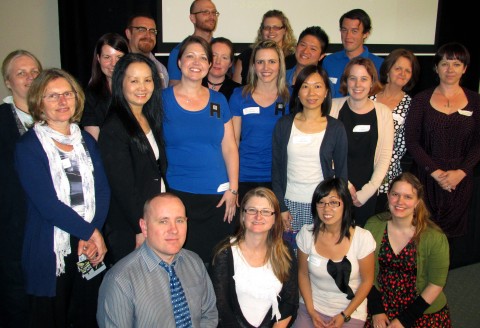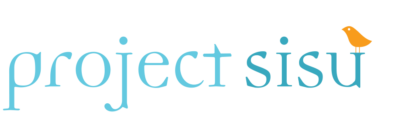Wild Things
It’s one thing to take part in a six-month long leadership development program (with a demanding job in the background), and quite another to come up with something meaningful and lasting at the end of it. That’s what this year’s Taking the Lead cohort has done, drawing on collective imagination to produce a suite of tools that will be useful to the library profession for years to come.

The 2012 Taking the Lead cohort
Taking the Lead is a program for public library professionals in team leadership roles. It is sponsored and funded by the State Library of NSW, with individual public libraries contributing to participants’ travel expenses and providing a supportive environment in which to take risks and do new things in the workplace. The 2012 program involved 22 people from urban, suburban and regional public libraries across New South Wales – from Port Macquarie to Leeton, and Manly to Liverpool. The program has a number of fixed structural elements – two workshops and a final presentation day; lots of tele-workshops in between; and project-based teamwork which spanned the six month program timeline. There were four project teams in 2012, each focusing on a library-related area that participants felt needed more attention. People had fun coming up with titles and plans, and the act of working together over six months (sometimes from afar) has forged lifelong collegial relationships. The four project areas were: Libraries: Where the Wild Things Are; Access the Awesome; Libraries without Walls; and
We are not pirates.
As the State Library’s blog summed it up:
“The team presentations (in November) were fantastic – talking dinosaurs; silent movies; dress ups; paper dolls; hidden treasure and more! There was so much enthusiasm, energy and fun in the room, but underlying all that was the undeniable hard work the groups had put into their presentations. It was obvious that a lot of research, thought and planning contributed to the end result.”
Here’s a quick description of each and links to some of the fabulous resources each team produced.
Libraries: Where the Wild Things Are
Worried about how young people may view a prospective career in libraries, this team was determined to reinvent perceptions about what librarians actually do and what contemporary public libraries look like these days. Improvising on the theme of ‘wild things’, including a raft of colourful associations like ‘walking on the wild side’, the team has created two entry points into a treasure trove of links, stories and myth busting facts. Check out their blog and Pinterest site.
Access the Awesome
First, there is the playful video (see above); next there is the Scoop-It site. Access the Awesome alludes to the transformational things going on in libraries around the world. ‘Social’ and ‘mobile’ are the keywords here, and this team has trawled the web for the best tips and insights into how public libraries can market themselves to their clients and communities. It’s all in one place, and there’s no excuse not to get out there and show how ‘awesome’ libraries can be.
Libraries without Walls (making non-users, users)
Each member of this team explored different pathways to invite and encourage greater library usage and participation. Accessing and analysing previously disparate statistical data underpinned their approach and gave them a platform for decisive action. Each team member took a risk and trialled something their library had never done before. Examples include running a sushi cooking class in Singleton Public Library (full house, total success); fronting up to local businesses and promoting the library to time-strapped doctors (Tamworth); and a roving reference service to ameliorate the inhibition some people feel in approaching the set-in-stone reference desk (Hawkesbury). The team gave a great presentation in November, with gorgeous slides and a captivating narrative.
We are not Pirates
Author Ursula Le Guinn is blunt: for many large publishers, libraries can “go to hell”. It’s a library’s job to make stuff available to people for free; and it’s a publishers job to make people pay for it. Open access is a cri de coeur for librarians across the globe, and friction with publishers over e-resources and e-books remains unresolved. Some publishers refuse to sell e-books to libraries; others insist that a library patron come into the physical library in order to borrow their e-book! It’s absurd, and this project team chose to tackle the dilemma head-on. The pirate metaphor was mined in the group’s November presentation, which was fresh, imaginative and punchy. The stand-off with publishers may remain, but librarians are marshalling their facts and arguments. We are not Pirates has given them a good head start.
Client: State Library of NSW
Team: Annie Talvé and Chia Moan


